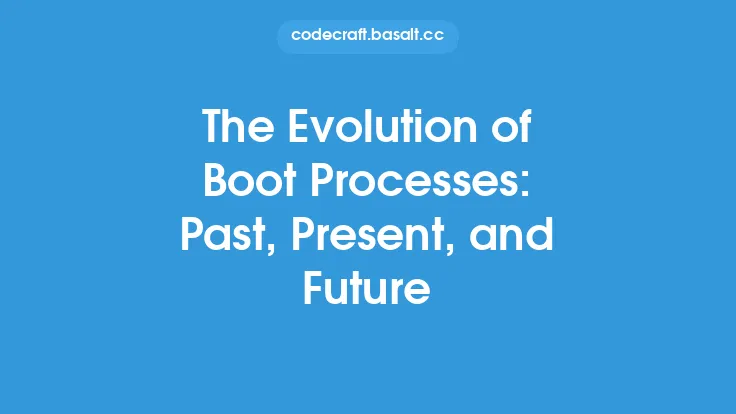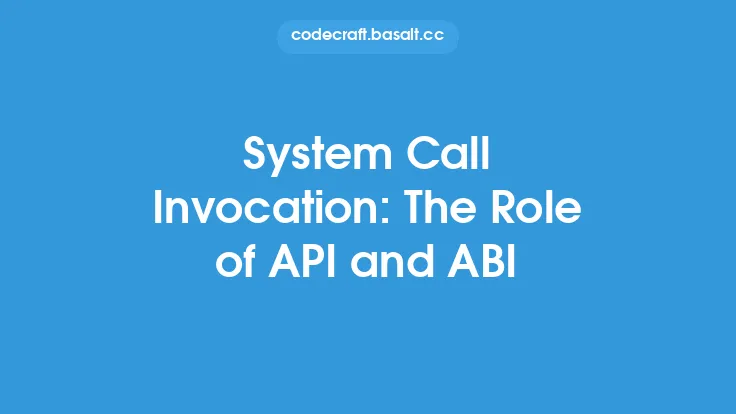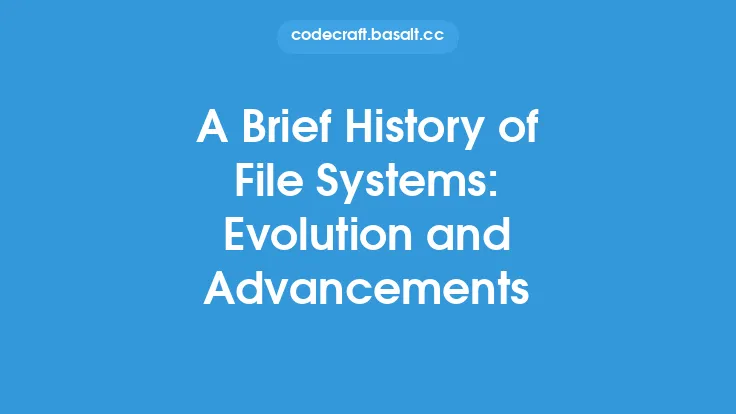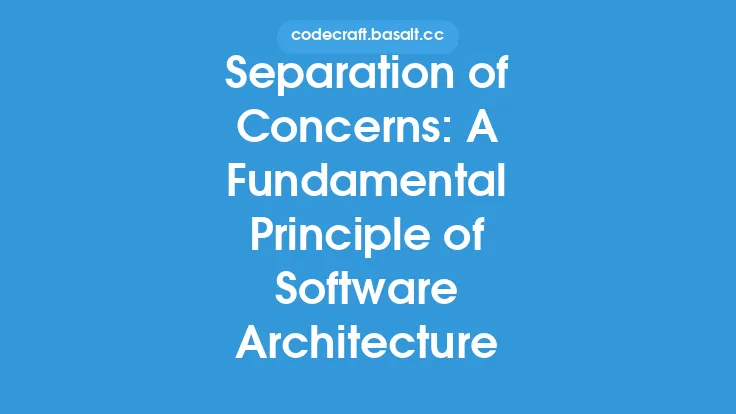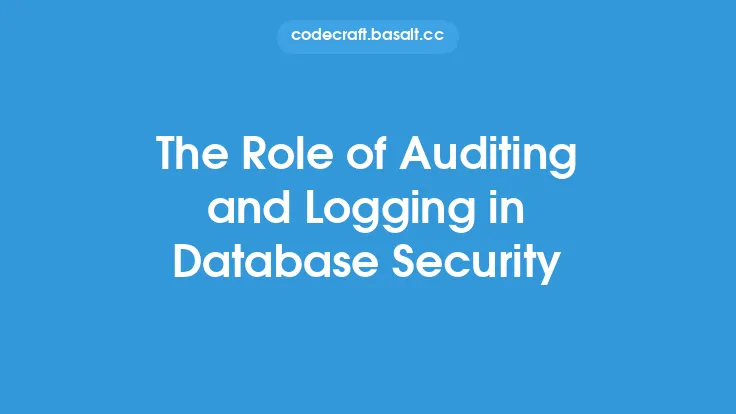The concept of system calls has been a fundamental component of operating systems since their inception. A system call is a request from a program to the operating system to perform a specific service, such as process creation, file access, or network communication. Over the years, system calls have evolved significantly, driven by advances in computer hardware, software, and programming paradigms. In this article, we will delve into the historical perspective of system calls, their development, and future directions.
Historical Background
The first operating systems, such as CTSS (Compatible Time-Sharing System) and Multics (Multiplexed Information and Computing Service), introduced the concept of system calls in the early 1960s. These early systems used a simple interrupt-based mechanism to invoke system calls, where a program would execute a special instruction to generate an interrupt, and the operating system would handle the interrupt by executing a corresponding handler routine. As operating systems evolved, so did the system call interface. The introduction of Unix in the 1970s revolutionized the system call concept, providing a standardized interface for programs to interact with the operating system. Unix introduced the concept of a system call table, which mapped system call numbers to corresponding handler routines.
System Call Development
The development of system calls has been influenced by various factors, including hardware advancements, programming language evolution, and changing user requirements. The introduction of virtual memory, for example, led to the development of system calls for memory management, such as `brk` and `mmap`. The advent of networking and the internet led to the introduction of system calls for network communication, such as `socket` and `connect`. The development of programming languages, such as C and C++, also influenced the system call interface, with the introduction of standardized libraries and APIs. The POSIX (Portable Operating System Interface) standard, introduced in the 1980s, further standardized the system call interface, providing a common set of system calls that could be used across different operating systems.
System Call Implementation
The implementation of system calls has undergone significant changes over the years. Early operating systems used a simple interrupt-based mechanism, where a program would execute a special instruction to generate an interrupt, and the operating system would handle the interrupt by executing a corresponding handler routine. Modern operating systems use a more sophisticated approach, where system calls are implemented using a combination of hardware and software components. The Linux operating system, for example, uses a system call table to map system call numbers to corresponding handler routines, and a hardware-based mechanism, such as the `SYSENTER` instruction, to invoke system calls. The use of caching and buffering mechanisms has also improved system call performance, by reducing the overhead of context switching and improving the efficiency of system call handling.
System Call Optimization
System call optimization has been an active area of research, with various techniques being developed to improve system call performance. One approach is to reduce the overhead of system call invocation, by using techniques such as system call batching and caching. Another approach is to optimize system call handling, by using techniques such as parallel processing and pipelining. The use of specialized hardware, such as graphics processing units (GPUs) and field-programmable gate arrays (FPGAs), has also been explored, to accelerate system call processing and improve overall system performance.
Future Directions
The future of system calls is likely to be shaped by emerging trends and technologies, such as cloud computing, artificial intelligence, and the Internet of Things (IoT). The increasing use of virtualization and containerization is also likely to influence the system call interface, with a greater emphasis on portability and compatibility across different operating systems and hardware platforms. The development of new programming languages and paradigms, such as functional programming and event-driven programming, may also lead to changes in the system call interface, with a greater emphasis on concurrency and parallelism. As operating systems continue to evolve, the system call interface will need to adapt to changing user requirements and technological advancements, providing a flexible and efficient mechanism for programs to interact with the operating system.
Conclusion
In conclusion, the evolution of system calls has been a long and winding road, shaped by advances in computer hardware, software, and programming paradigms. From the early days of interrupt-based mechanisms to the modern-day use of caching and buffering, system calls have played a critical role in the development of operating systems. As we look to the future, it is clear that system calls will continue to play a vital role in the development of operating systems, with emerging trends and technologies driving changes in the system call interface. By understanding the historical perspective and future directions of system calls, developers and researchers can better appreciate the complexities and challenges of operating system design, and work towards creating more efficient, scalable, and secure systems.
